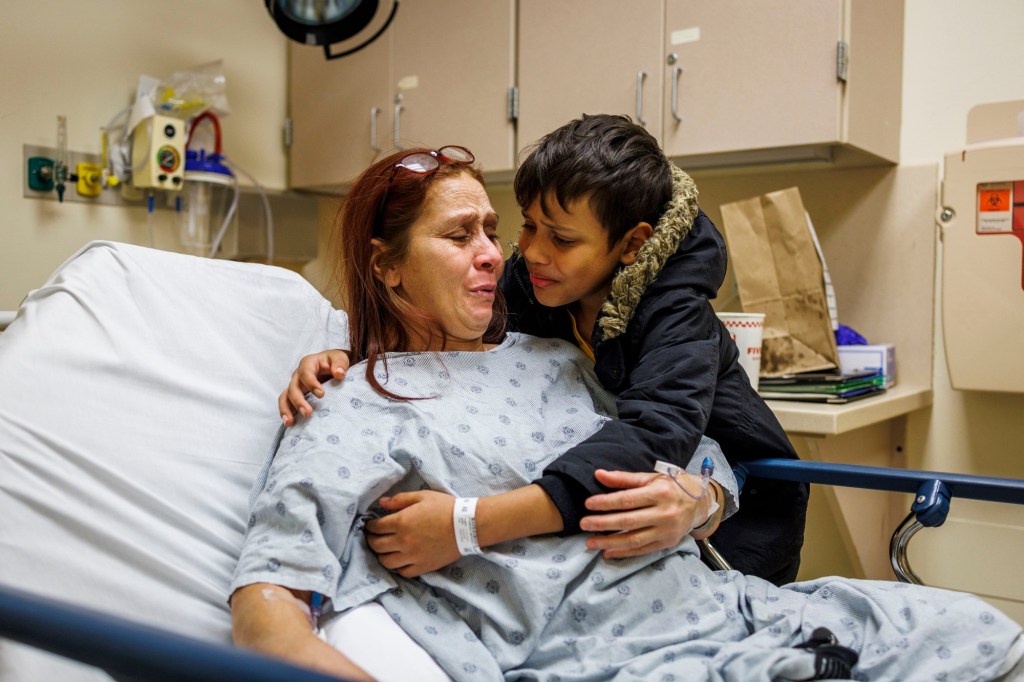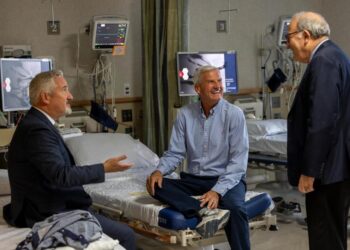Esperanza Mendez worries she may be dying, though she doesn’t say it out loud to her two young children.
There is a cyst on her neck, which she said feels like it’s putting pressure on her brain and causing pain in her head. The lump has been growing for three years, and now her whole body aches, especially her arms and legs. She has trouble opening and closing her fists.
“I feel terrible. My head hurts so much,” she often says while pressing her thumbs on her temple. “Me siento muy mal. Me duele mucho la cabeza.”
A few weeks ago, worried about her health — as well as that of her kids, who she suspects are malnourished from their journey migrating to the United States from Venezuela this summer — Esperanza set out to get medical care in her new city. She entered a public health system that is already feeling the strain of caring for thousands of other uninsured people with exacerbated health needs — emotional, physical and more.
She recently spent 14 hours waiting for care in the emergency department at one of the busiest Level 1 trauma centers in the nation.
The prolonged wait time, exhaustion and uncertainty that Esperanza, 47, and her kids experienced are symptoms of a U.S. health care system that caters to people with citizenship, medical insurance and means.
More than 24,000 migrants — mostly from Venezuela — have come to Chicago since August 2022, and are depending on health care from a patchwork of hospital emergency departments and free and charitable medical clinics.
Esperanza was unable to receive proper attention for the lump in her neck in Venezuela, where she also struggled to make enough money to feed her family. So she and her kids walked across seven countries for a better and safer future.
This summer, the Tribune followed the Mendez family on their journey from the border town of El Paso, Texas, to Chicago.
Since arriving July 15, they family has had to adjust to the…
Read the full article here







